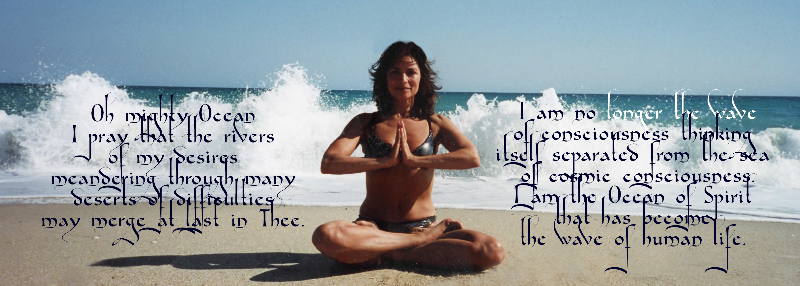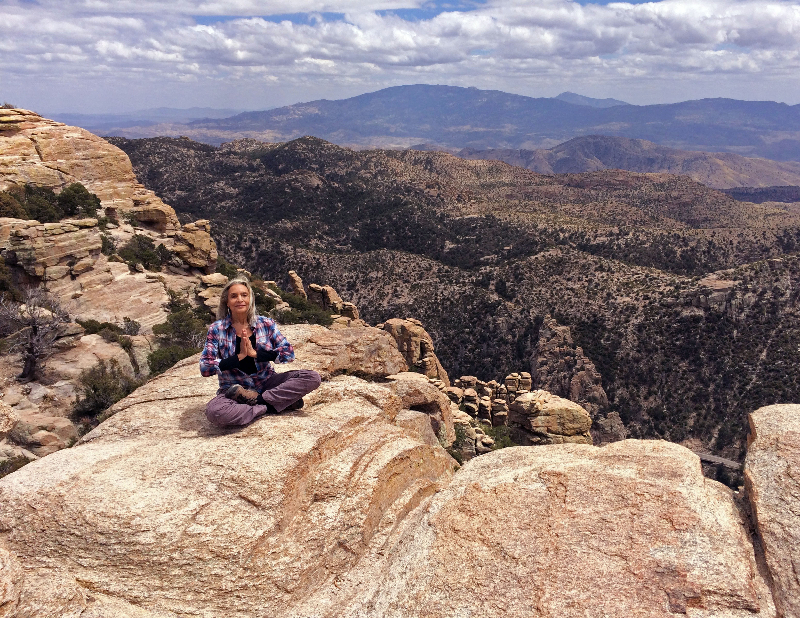A CONVERSATION WITH A CRONE
The Grateful Goddess Interviews Pamela Asherah
A CONVERSATION WITH A CRONE
The Grateful Goddess Interviews Pamela Asherah
Hello Pamela, thank you so much for granting me the privilege of this interview. I know your energy is compromised in your final stage of life, so I acknowledge this great honor that you agreed to this interview to share your wisdom with our Goddess community. I believe your insights will provide great comfort and introspection for many. If you would, please begin with a little background on yourself.
I grew up in the Bronx and Queens—a child of East European parents who were traumatized from the devastating experiences that drove them away from their countries of origin. The anxious, fearful and depressed emotional climate of our home was the only world I knew until I graduated from high school and joined my older sister in Berkeley California. The “peace and love” culture of that time brightened my perspective on life and I was drawn to explore literature, creative writing, dance, expressive arts, healing arts, yoga, meditation, qigong, tai chi, Eastern and Native American spirituality, and Shakti energy—the feminine power. I knew I had come out of darkness and needed to know about light. To clear myself, I felt I had to purify my body, mind and emotions—an ongoing life commitment. Once into yoga, I became very mindful of my health and shifted to a vegetarian diet. I began to develop a relationship with the inner part of myself that knows what’s best and healthy. Although at times I’ve strayed from this chosen path, I’ve still continued to rely upon inner guidance throughout my life.
What can you tell us about your health journey ~ what and when were you diagnosed and what is the prognosis?
I discovered a lump in my breast when I was on the floor of my living room, doing a diagonal yoga stretch. There was an obstruction by my right pectoral muscle that wouldn’t allow me to complete the stretch. In 1992, my older sister died from breast cancer while receiving the most aggressive chemo and radiation treatments up until a few weeks before her end. I decided back then that I would rather die from a disease than from toxic treatments that poison the life force. Cancer has always been a threat because ovarian and breast cancer have been prominent in my family. My doctors insisted that I receive regular mammograms, and I did until 2002. Because of a “suspicious” mammogram I had at Tucson Breast Center that year, I was put through a painful and dehumanizing wire localization procedure followed by an hour-long breast surgery that removed a portion of my right breast. The biopsy results revealed calcium deposits, not cancer. My physicians at UMC manipulated my emotions to arouse fear and I was treated like a piece of meat in a factory. I remember a time when I meditated before I had the procedures and I knew, absolutely knew I did not have cancer—I was completely clear that the whole experience was a mind trip! But I still allowed myself to be controlled and disempowered and I was left feeling emotionally and physically abused and very angry with myself. That experience, along with my memory of my sister’s death, stayed with me and influenced my medical choices when I was diagnosed with stage 4 breast cancer in 2011 and told I had less than 1% chance for survival.
What did they want you to do for treatment?
I began a quest that lasted months to find an oncologist capable of accepting me as a partner in any treatment plan. Meanwhile, I tried multiple alternative therapies that ended up being ineffectual. Every cancer specialist I saw insisted that I go with an aggressive surgery/radiation/chemo plan. I said I was interested in a new immunotherapy target drug—Herceptin—but told I had to do the aggressive treatments first. I would not agree.
Could you please share the story of the doctor who screamed at you?
The first oncologist I saw at UMC, Dr. Livingston, was not pleased when I rejected his offer of an aggressive approach. He became angry, got in my face and said, “YOU UNDERSTAND—YOU WILL DIE!” That didn’t faze me because I’m not afraid of death and I clearly saw that he wanted to manipulate my fears. Ironically, I recently learned that he died before I have!
What did you decide to do instead?
I finally found the right oncologist in April 2011, one with a compassionate heart and flexible approach—Dr. Donald Brooks at Arizona Oncology. He said he would never force an unwanted treatment on me and looked forward to working with me as a partner in our medical plan. I said my goal was to maintain quality of life for however long that lasts. He said he believed he could give me five years and I happily accepted his offer! I was interested in target drugs and Dr. Brooks immediately started me on Herceptin. The treatment worked incredibly well for almost six years to control the disease, relieve pain and restore a good measure of quality life. We’ve juggled in other targeted treatments when the tumor markers began to rise. Unfortunately, one of them—Kadcyla—used a chemo agent that had a cumulative toxic effect on my liver that recently resulted in cirrhosis. This only confirms my belief that if I had agreed to an aggressive chemo plan, I never would have survived this long.
How did you decide or know what was in your best interest?
My best interests go in the direction of light, not darkness. I want to be treated with dignity, respect and compassion. I want to be in charge of making health decisions even if I misjudge. I’m committed to accepting the consequences of my actions because I believe there’s a lesson to be learned in every life experience. “Saving” my physical body has not been my ultimate goal. The human journey that brings awareness and insight is what gives my life true meaning.
Looking back on your life, what are you most proud of?
I am looking back on my life because I know I’m reaching the end. I wouldn’t exactly say I’m proud but I appreciate my ability to spring back from experiences that drag me down, to learn from them, and to always move toward the light. I was raped and a victim of physical violence in my teens, I was under the influence of a man who exposed me to dangerous drugs in my early 20’s, I’ve been betrayed and back-stabbed out of a job that was meaningful to me, I lived in conflict with my controlling father for decades but took care of him at the end of his life and brought joy and serenity to his heart. Throughout all this, I’ve been able to create my home as a personal sanctuary in the desert, and within myself, a sanctuary of peace and healing to share with others. This is what I value most.
What is one thing you wish people better understood about life?
We’re all so caught up in social expectations, family and financial survival needs and issues, along with continuous digital distractions. Our thoughts and emotions are constantly being programmed and manipulated and we forget what it feels like to breathe, to be present and to discover the deeper self within. We’re all truly connected to each other and to everything, and we forget we’re beings of light separated from our radiant essence by our physical packaging. If we look beyond our two eyes of perception, we would see ourselves in all things, in all places, everywhere, and we would know the brilliant magnitude of our power.
How will you want people to remember you?
I think of a poem from the Navajo Night Chant healing ritual:
With beauty before me may I walk
With beauty behind me may I walk
With beauty above me may I walk
With beauty below me may I walk
With beauty all around me may I walk
It is finished in beauty
It is finished in beauty
Thank you my dear, you are a true love!!
In parting, here is one of my favorite photos of Pamela from 1998. I love the way nature joined in to crescendo this beautiful moment.


